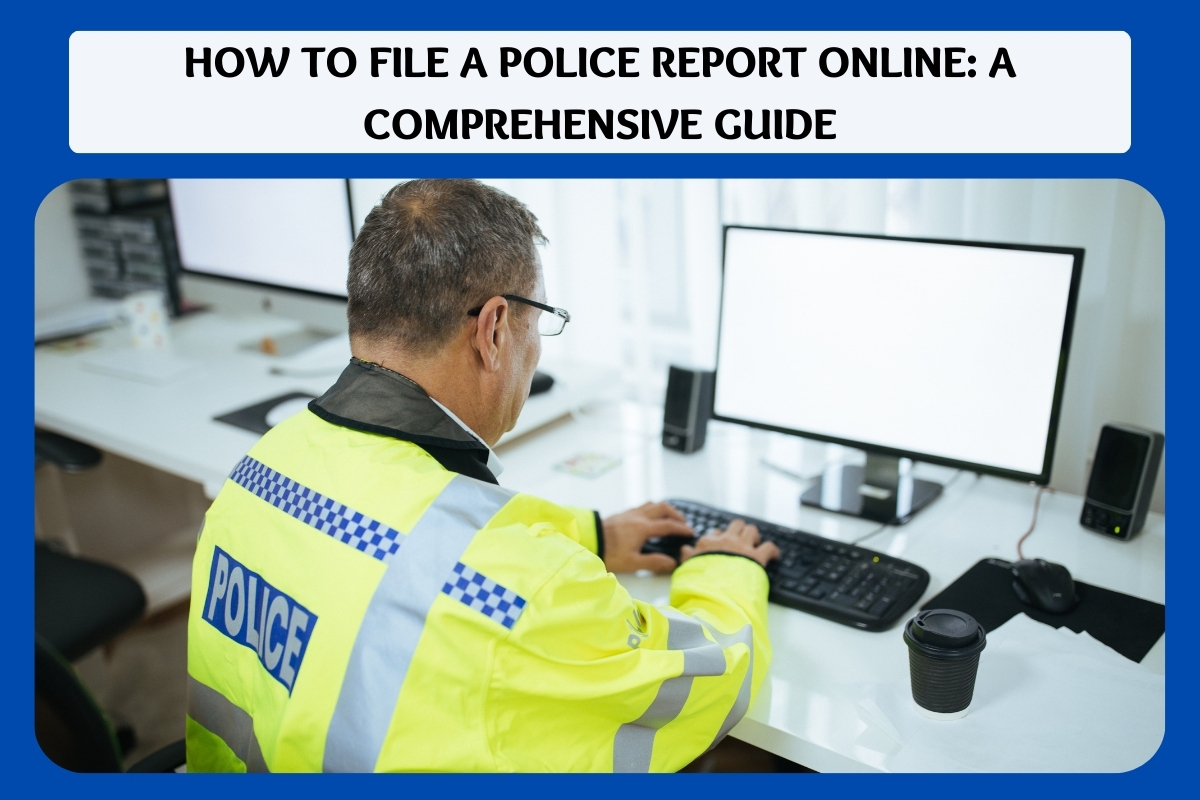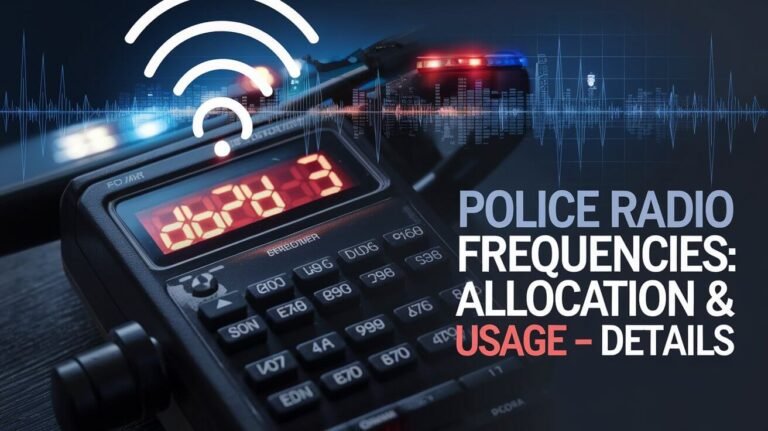How to File a Police Report Online: A Comprehensive Guide

The ability to file police reports online has revolutionized the way we report crimes and incidents. Not only does it save time and effort, but it also provides a more efficient and accessible method for citizens to engage with law enforcement agencies.
Understanding When to File a Police Report Online
Before we delve into the specifics of online reporting, it’s crucial to understand when it’s appropriate to use this method. Generally, you can file a police report online for non-emergency and non-violent crimes, such as:
- Theft (e.g., stolen property, pickpocketing)
- Property damage (e.g., vandalism, graffiti)
- Identity theft
- Harassment (e.g., phone harassment, cyberbullying)
- Lost or missing items
- Minor traffic accidents (without injuries)
However, if you’re experiencing an emergency situation or a crime in progress, it’s essential to call 911 or your local emergency number immediately. Scenarios that require immediate attention from law enforcement include:
- Any life-threatening situation
- Violent crimes (e.g., assault, robbery)
- Domestic violence
- Crimes involving weapons
Report crimes quickly to improve chances of investigation success and suspect apprehension.
Gathering Necessary Information
Before you begin the online reporting process, it’s essential to gather all the necessary information related to the incident. This information will help ensure that your report is as accurate and detailed as possible, aiding the investigation process.
Here are some crucial details to have on hand:
- Date, time, and location of the incident
- Description of the incident (what happened and how it occurred)
- Description of any suspects (physical characteristics, clothing, vehicle details, etc.)
- Description of any stolen or damaged property (make, model, serial numbers, etc.)
- Names, contact information, and statements of any witnesses
Have supporting evidence like photos, videos, or receipts ready to upload during online reporting.
Locating the Online Reporting System
The first step in filing a police report online is to locate the appropriate online reporting platform for your local law enforcement agency. Most cities and counties have dedicated websites or portals specifically designed for this purpose.
To find the online reporting system in your area, you can:
- Search for “[your city/county] online police report” on your preferred search engine
- Visit your local law enforcement agency’s website and look for an “Online Reporting” or “File a Report” section
- Call the non-emergency number for your local police department and inquire about their online reporting procedures
Online reporting procedures and requirements differ by location, so follow instructions from your local law enforcement agency.
Here are a few examples of online reporting systems in major cities:
- Austin, Texas: The Austin Police Department offers an online reporting system for non-emergency incidents, accessible through their website.
- Nashville, Tennessee: The Metro Nashville Police Department allows online reporting for certain types of incidents, as long as specific criteria are met (e.g., no known suspects, no domestic relationships involved).
- Columbus, Ohio: The Columbus Division of Police provides an online system for filing reports related to non-emergency offenses, such as theft, property damage, and vandalism.
Step-by-Step Guide to Filing an Online Police Report
Once you’ve located the appropriate online reporting system for your area, follow these general steps to file a police report online:
- Create an Account (if required): Some online reporting systems may require you to create an account or provide personal information, such as your name, address, and contact details.
- Select the Type of Incident: Choose the appropriate category or type of incident you’re reporting from the available options (e.g., theft, property damage, harassment).
- Provide Incident Details: You’ll be prompted to provide detailed information about the incident, including the date, time, location, and a narrative description of what happened.
- Upload Supporting Evidence: If you have any photographs, videos, or other documentation related to the incident, you’ll have the opportunity to upload these files during the reporting process.
- Review and Submit: Once you’ve provided all the necessary information and supporting evidence, carefully review the report to ensure accuracy before submitting it.
- Receive Confirmation: After submitting the report, you should receive a confirmation or case number for your records. Some systems may also provide updates or allow you to track the status of your report online.
The specific steps may differ based on the online reporting system, but the general process is similar across cities and states.
Benefits of Filing a Police Report Online
Filing a police report online offers several advantages over traditional in-person reporting methods:
- Convenience and Accessibility: You can file a report from the comfort of your own home or any location with internet access, without having to visit a police station in person.
- Time-Saving: Online reporting can be completed more quickly, as it eliminates the need for travel and waiting times associated with in-person reporting.
- Faster Processing: Many law enforcement agencies prioritize and process online reports more efficiently, potentially leading to quicker response times.
- Online Tracking: Some online reporting systems allow you to track the status of your report and receive updates on the investigation.
- Environmental Benefits: By reducing paper usage and eliminating the need for physical documentation, online reporting contributes to a more sustainable and eco-friendly process.
Important Considerations
While filing a police report online offers numerous advantages, there are some important considerations to keep in mind:
- Accuracy and Truthfulness: It’s crucial to provide accurate and truthful information when filing a police report, as filing a false report can result in legal consequences.
- Privacy Concerns: When providing personal information and details about the incident, be mindful of potential privacy concerns. Ensure that you understand how your personal information will be handled and protected by the law enforcement agency.
- Limitations: Online reporting may not be suitable for serious or ongoing crimes, as these situations often require immediate attention and intervention from law enforcement authorities.
- Follow-Up: Depending on the nature and severity of the incident, law enforcement officials may need to follow up with you for additional information or to conduct further investigation.
Frequently Asked Questions
How long does it take to process an online police report?
The processing time can vary depending on the law enforcement agency and the complexity of the case. However, online reports are generally processed more quickly than in-person reports.
Can I obtain a copy of the police report I filed online?
Yes, most online reporting systems allow you to request and obtain a copy of your police report, typically after it has been processed and approved.
What if I need to provide additional information or evidence after submitting the report?
Many online reporting systems include instructions on how to submit additional information or evidence after the initial report has been filed.
Is filing a police report online free?
In most cases, filing a police report online is free of charge. However, some agencies may charge a nominal fee for obtaining a copy of the report.
Can I file an anonymous police report online?
The ability to file an anonymous report online varies by jurisdiction. Some agencies may allow anonymous reporting, while others require personal information for the report to be processed.
Final Thoughts
Filing a police report online has become an increasingly popular and convenient option for reporting non-emergency and non-violent crimes. By following the steps outlined in this guide, you can navigate the process with ease and ensure that your report is accurately documented.
Remember, reporting crimes promptly and providing detailed information is crucial for law enforcement agencies to effectively investigate and resolve cases. Take advantage of the online reporting option when appropriate, as it can save time, increase accessibility, and contribute to a more efficient and sustainable process.
If you ever find yourself in an emergency situation or a crime in progress, always prioritize your safety and contact the appropriate emergency services immediately.






